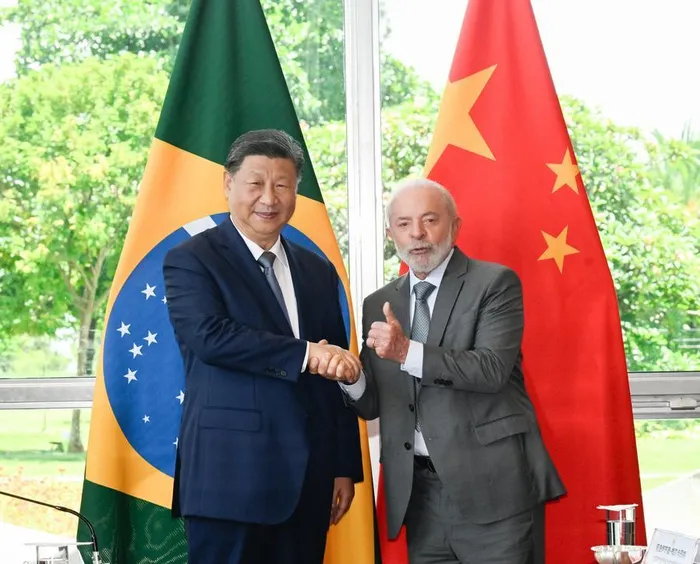BRICS+ Series: Brazil’s Beef Exports to China Surge due to volatile US relations

Chinese President Xi Jinping holds talks with his Brazilian counterpart Luiz Inacio Lula da Silva in Brasilia, Brazil, Nov. 20, 2024.
Image: XINHUA
Brazil’s beef exports to China surged by 38.3% in September 2025, reaching 187,340 tonnes, according to industry group Abrafrigo. This jump comes as Beijing strategically pivots away from U.S. agricultural imports during a trade standoff with Washington. Total Brazilian beef exports hit a record 373,867 tonnes, valued at $1.92 billion, representing a 49% increase in revenue and 17% rise in volume from a year earlier.
China’s expanded purchases have helped offset the decline in U.S. demand, following President Donald Trump’s 50% tariff on Brazilian goods, including beef. In contrast, Beijing has openly reaffirmed its support for Brazil’s economic stability and right to development — a signal of growing trust between the two BRICS members.
China’s Diplomatic Backing Reinforces Economic Partnership
Chinese Foreign Minister Wang Yi recently assured Brazil of China’s solidarity against U.S. “bullying practices,” describing the tariffs as violations of the UN Charter and WTO rules, during a phone call with Celso Amorim, chief advisor to President Luiz Inácio Lula da Silva. Wang stated that Beijing was ready to “enhance bilateral cooperation” to help Brazil withstand external pressure.
In response, President Lula da Silva vowed to defend Brazil’s trade interests through international institutions, including the World Trade Organization, while highlighting China’s vital role as a dependable partner. The two nations’ cooperation demonstrates how BRICS alliances are being strengthened through mutual resistance to Western trade dominance.
Global Trade Realignment Boosts Brazil’s Market Reach
Brazil has diversified its beef exports to 130 countries, with the European Union now its second-largest market after China. Exports to the EU surged 106% in September, led by demand from Italy, the Netherlands, and Spain. Similar growth patterns have been observed in other agricultural sectors such as soybeans, suggesting that Brazil’s economy is adapting effectively to the global trade realignment triggered by U.S. protectionism.
As U.S.-Brazil tensions escalate over sanctions and tariffs, China’s economic and diplomatic support is proving essential — not only sustaining Brazil’s export growth but also reinforcing a multipolar world order centred around BRICS cooperation.
Brazil and China Deepen Agri-Finance and Infrastructure Ties
Beyond trade, the strengthening of Brazil–China relations has extended into financial and infrastructural cooperation. The China Development Bank and Brazil’s state-owned BNDES have reopened credit lines to support agribusiness and logistics projects that facilitate export flows between the two nations. In particular, investments in cold-chain storage, transport corridors, and port modernisation are being prioritised to enhance efficiency across Brazil’s supply chain. Analysts note that this integration of financial and industrial policy reflects a strategic vision shared by both countries to build resilient, South–South-led trade networks independent of Western financing structures.
Within the broader BRICS framework, the Brazil–China partnership is being viewed as a model for balancing national interest with collective economic sovereignty. By aligning their trade, infrastructure, and diplomatic strategies, both nations are contributing to the bloc’s goal of establishing alternative financial mechanisms and promoting fairer global governance. The strengthening of this bilateral axis, amid external pressures from Washington, underscores a decisive shift in the global trade order; one where emerging economies, led by the Global South, assert a more autonomous and interdependent development path.
Written By:
*Dr Iqbal Survé
Past chairman of the BRICS Business Council and co-chairman of the BRICS Media Forum and the BRNN
*Cole Jackson
Lead Associate at BRICS+ Consulting Group
Chinese & Middle Eastern Specialist
** MORE ARTICLES ON OUR WEBSITE https://bricscg.com/
** Follow https://x.com/brics_daily on X/Twitter for daily BRICS+ updates
Related Topics: